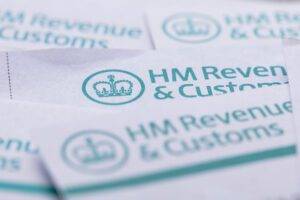Nearly 300,000 people filed their Self Assessment tax returns in the first week of the new tax year — the highest number ever recorded during the opening week of filing, according to HM Revenue and Customs (HMRC).
The figures show that 299,419 returns were submitted between 6 and 12 April, almost 10 months ahead of the 31 January 2026 deadline, as more taxpayers opt to file early to get ahead of their financial responsibilities. The figure represents a 28,503 increase compared with the same period five years ago, when 270,916 people filed in the first week of the 2020 tax year.
More than 57,800 people submitted their return on 6 April, despite the day falling on a Sunday this year, suggesting growing awareness of the benefits of early filing. HMRC says early submission gives taxpayers more time to budget for their tax bill, avoid penalties, and even receive refunds more quickly where applicable.
Filing early has practical advantages, particularly for self-employed workers and small business owners. Jade Milbourne, who co-runs a dog grooming salon, said early filing has become a crucial part of her annual routine.
“Filing early means that I have plenty of time to pay my tax bill,” she said. “I set aside money each month, and the flexibility it gives me takes the stress out of the whole process.”
HMRC is keen to encourage more taxpayers to follow suit. Myrtle Lloyd, HMRC’s Director General for Customer Services, said early filing offers peace of mind and helps people focus on their business or personal lives without the looming pressure of a tax deadline.
“Filing your Self Assessment early means you can spend more time growing your business and doing the things you love, rather than worrying about your tax return,” she said.
The tax authority has updated its guidance on early filing and payment options on GOV.UK, including a budget payment plan feature that allows customers to pay their bill in weekly or monthly instalments via Direct Debit. For those owed money, refunds can be issued as soon as the return is processed, and taxpayers can check their status through the HMRC app.
Who needs to file?
HMRC is also reminding taxpayers to check whether they are required to file a Self Assessment return this year. Individuals must file if they:
• Are newly self-employed with income over £1,000
• Rent out one or more properties
• Earn over £2,500 in untaxed income
• Receive Child Benefit and earn over £60,000
• Have savings or dividend income over £10,000
• Need to pay Capital Gains Tax
• Are in a business partnership
A full list of criteria and a checker tool is available on GOV.UK.
With the rise in early filings, HMRC has also issued a warning about phishing and fraud attempts. Criminals often impersonate HMRC through texts, calls, and emails, especially during peak tax periods. HMRC urges taxpayers to never share their login credentials and to verify any suspicious contact by searching “HMRC phishing and scams” online.
As record numbers move to get their tax affairs in order early, HMRC hopes to build on the momentum and reduce the January tax rush. The message is clear: early filing isn’t just efficient — it could save you time, stress, and money.
Read more:
Record 299,000 tax returns filed in first week of new tax year, says HMRC

